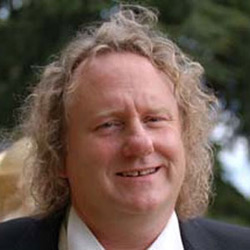Recent Stories
- Businesses urged to tap into science and technology young talent
- Digital relay baton enables remote crowd cheering of athletes
- Health Innovation Campus moves a step closer
- £7.1 million R&D boost for North West businesses
- Centre of excellence created for the next industrial revolution
- Artificial intelligence toolkit spots new child sexual abuse media online
- Strategic partnership set to help plug cyber security skills gap
- What your choice of smartphone says about you
- InfoLabTree: Discover the Story
- novi.digital Launch Event - 'An Event to Help Businesses Grow Online'
RSS Feeds
RSS feeds can deliver the latest InfoLab21 news and events direct to your browser without you having to visit the website.
In most browsers you can click on an RSS link and choose to subscribe to the feed to add it to your favourites or bookmarks.
Microsoft Fellowship For InfoLab21's Dr. Mark Rouncefield
Story supplied by LU Press Office
 Dr. Mark Rouncefield
Dr. Mark Rouncefield
A sociologist at Lancaster University has won a Microsoft European Research Fellowship worth a quarter of a million Euros for work which could influence the design of new technology.
The award is one of only two Fellowships in the whole of Europe in 2006 and Lancaster is the only university in the UK to have won one.
The funding has been awarded to Dr. Mark Rouncefield, a Senior Research Fellow in the Department of Computing based at InfoLab21, the University's £15m information and communication technologies centre.
Dr. Fabien Petitcolas is responsible for the Fellowship programme at Microsoft Research Cambridge, which is aimed at recognising and supporting outstanding scientists who are making a unique, important contribution to science and computing and who are becoming leaders in their field.
He said: "Microsoft Research is very pleased to be able to provide assistance to promising scientists and we would like to congratulate Mark on his success. Supporting Mark in his research is an example of how we can enable Europe to continue its heritage of pioneering science-based innovation."
The two year project "Social Interaction and Mundane Technologies" will examine the impact of new technologies such as email and mobile phones on social and organisational life.
Dr. Rouncefield said: "I'm interested in how some features of everyday social interaction - being a member of a community, being part of a family or friendship group, making decisions, displaying emotion, being bored etc - are affected by the use of a range of everyday mundane technologies and applications.
"These are technologies or applications that are commonplace, that just about everybody has and uses without a great deal of thought or effort - such as mobile phones, SMS texting, email, Word, Powerpoint, Excel etc.
"I'm interested in a whole range of things that on their own may appear trivial. How do you convey emotion, happiness or sadness in an email ? Why might you use texting to dump your boyfriend ? When and why do parents buy their children their first mobile phone? Does PowerPoint shape what people try to say as well as how they say it? But collectively these things seem both interesting and perhaps important, especially for design.
"If you design a system like email for an organisation, you need to know more about what that system does and how people use it. The designers need to be aware of how people interact with mundane technologies so they can make them as successful as possible and so what I'm doing could influence the design of future applications."
Dr. Rouncefield added that "mundane technologies" such as walking boots and typewriters have been studied before but his research will take a different approach.
"I am concerned with understanding the ways in which mundane technologies afford "social translucence" which involves making socially significant information visible, providing an awareness of others and their actions, rights and obligations and providing a mechanism for accountability and so on".
Mon 11 December 2006



